Omari Hardwick: The Fight in the Dog
By Atkilt Geleta
By the time Omari had gotten on the phone with Sway he had spent all night at the hospital. He was audibly exhausted and distraught. I assure him that the interview will take all of ten minutes. “I’m going to try to muster all the energy I can to give you,” he says.
His dog had undergone surgery after surviving a vicious attack the night before. He describes it as a “peculiar day” while speaking to me on the drive back from the hospital. I didn’t know what to expect from the Atlanta bred, once NFL bound athlete turned actor. I was mostly content to be speaking to someone who starred alongside thee Janet Jackson in For Colored Girls.
Instead, I had an engaging conversation with a shrewd and genuine artist aware of his career trajectory and intensely serious about his profession. He carried himself as a principled guy mindful of Tinseltown politics and very much levelheaded and relatable.
In our conversation he mentions his dog and uses her perseverance as a metaphor for his own tenacity in the industry. The comparison is appropriate. This is a guy who, like his Colored Girls director Tyler Perry, at times lived out of his car in L.A. before he found his first break working alongside another American luminary in Spike Lee. Since then, he’s worked in a variety of film and television roles including The Guardian, Dark Blue, Saved and Lee’s Miracle at St. Anna.
The interview ran well past the ten minutes I guaranteed as we discussed film, Hollywood, For Colored Girls, Spike Lee vs Tyler Perry, and his path to the A list.
Tell us about your background, where you grew up and what it was like?
Well I grew up maybe 10 minutes on the outskirts of Atlanta. Decatur, Georgia to be exact. It was like any urban community I guess. Typically families were ranging from mom and pop in the household, blue collar families to single family households where maybe it was a lot harder for certain individuals I grew up with. By the time I was 15 or 13, the high-school I was attending was not my local high-school, it was about 45 minutes away in north east Atlanta, and I would go home every day in the city. I had the sport background and I was the middle kid. It was a good upbringing. My mom and my pops were both in the household, and I was very family oriented.
You were into sports and were NFL bound until an injury cut that career short.
Yep. In high-school I played three sports growing up, actually four at one point if you’d include track. Played basketball, football, baseball [and] ran track one or two years. The sport that really took me to the next level was football. It garnered me a scholarship, I went off to San Diego post-college and ended up working out as a free agent and got a shot. Then due to injury I backed away from that, and found my way in New York studying theatre from hole in the wall theatres to off-Broadway.
How did you get into acting in the first place?
It wasn’t really after. I minored in theatre at the University of Georgia. I transferred from Berman University where I signed coming out of high school, and I was recruited by a lot of colleges, Georgia being one of them. So when I transferred I just looked for a school that was a little bit more diverse like I was finding myself to be. And the University of Georgia had such a great Communications department which I majored in, and theatre was big there. The school allowed for that multi-faceted side of myself to really be explored. I ended up trying out for the league and not knowing whether I would parlay that into maybe a job as an anchorman or sports analyst, and then coming back full circle and maybe trying my hand at theatre. But when I got cut as early as I got cut, I just said forget it let me just go for the gusto and try my hand at acting. But it was already calling me when I was in college.
When you moved to L.A., at one point you were living out of your car.
Yeah you know at times – the irony of that is there were times of-course I was poor like any struggling actor, eating Ramen noodles to 99-cent chicken sandwiches at the local fast food spot. I did have my days where I was living out of a car. I also had those days after booking my first job. My first real gig as an actor was Spike Lee’s Sucker Free City, and to be honest with you when that did not become a series like we thought it would be, I found those days in a car again. It was kind of a rollercoaster for a while until the year of Gridiron Gang, The Guardian and the show Saved. That’s when I kind of took off.
What made you so certain that you’d make it when you found yourself in those types of situations and you were making that sacrifice? Where did you find the drive to keep at it?
I think the drive was already there, I didn’t have to look far for it. It’s ironic, because picking up the dog from the hospital just now, I realized why I like myself enough or so much is because the same fight that this dog has in her to be able to survive the awful attack last night is perhaps the same fight that’s inside of the dog Omari [to survive] the onslaught of attack that Hollyweird throws at you. I didn’t have to look far for the fight. I was fortunate as I told you to come from a very close knit family. We survived a lot [so] that was there. I think I did have those moments of being human where I called home and was like I don’t know if I can continue to do this. But I felt destined. I think I heard God’s voice in the back constantly telling me that I’d make it.
Another guy that lived out of his car before finding success was Tyler Perry. So how did the opportunity for For Colored Girls come about?
It was a project that saw a lot of us in terms of the audition room, and then it was shelved for a while because of different things, studio dilemmas and what have you. When it came back around six to seven months later I auditioned again. I auditioned I think on a Monday or a Tuesday – I was already working on the second season of Dark Blue. Probably within two days they told me that the job was going to go to me and that I booked it. I had already been on I guess Tyler’s Radar for a while for previous projects, but none of those ever clicked in terms of us working together.
What was that experience like working with and being on set with the Janet Jacksons the Kerry Washingtons and everybody?
For me man it probably was a bigger deal for me to be on the set with Phylicia Rashad, Loretta [Devine] and Whoopi Goldberg. No slight obviously to my peers in Kerry and to the icon in Janet Jackson. But I think more so I had to pinch myself because of the fact that I was working with these legends who raised us all. Being raised and listening to and watching Janet Jackson was equally but separately a pinch. That was just as humbling, for different reasons obviously than working with the legends of Loretta and Phylicia, but equally as powerful to work with Janet Jackson and kind of go in not knowing what to expect from her as an actress. Like you said Kerry, Kimberley [Elise], Thandie [Newton], Tessa [Thompson], Anika Noni Rose, Macy Gray – I kind of know what to expect from them as actresses and they’re young guns in the game and trying to continue the path that Phylicia, Loretta and Whoopi have set for them. But Janet, I just didn’t really know what to expect from her as an actress. More so for me it was a nice pleasant surprise to be able to play tennis with her as an actress and see that she can hit the ball back. It was a great process.
You also worked with Spike Lee as you mentioned.
Two times now. First on the pilot Sucker Free City, which was my first gig in the business, and the second one was Miracle at St. Anna. It’s been a great run in terms of working with him and it was four years between the first time and the second time. Hopefully there’ll be many other opportunities to work with him, but we have a very dear relationship and I always will be indebted to him because of the fact that he was simply the first person, the first director, the first power player to really let me work and tell the town this guy is somebody that we should all pay attention to.
What was it like being around him creatively given what he means to black film?
It was very educational. That’s a vague answer, but specifically things like the first thing he ever told me, which was 90 per cent of directing is who you cast. Now I’ve tried my hardest to take that with a grain of salt. I tend to think acting is overrated if the director is great and the writing is impeccable. Maybe the team concept and the fact that I come from sports and he’s such an avid sports fan our analogies and the way that we talk is so similar that it was a telepathic communication. We just had a synergy that maybe you see with Bobby De Niro and Martin Scorsese, and now Leonardo [DiCaprio] and Martin Scorsese. I think Spike and I developed that very, very early. I just learned really how to set up a shot. I do want to direct in the future and I learned how much colors matter. Spike’s always splashed a lot of colors on screen and juxtaposed those to a lot of white and grey images at the same time. So yeah, creatively, he’s a monster. He’s brilliant. I guess I’m more of an artist than an actor and so it meshed perfectly. The way he looked at life and the way he looked at film is a lot like the way I look at both. So, it works.
Ok, excellent. So you’ve worked with both and you’ve been around both Spike Lee and Tyler Perry.
And Andy Davis who’s brilliant from The Guardian, and Mathew Vaughn who shot Kick-Ass. You know, not to keep it just regimented to the directors who look like me when I look in the mirror. I’ve been fortunate to work with some beasts of all races really.
Right, that’s true. But the question I was going to go into was that Spike and Tyler have very different I guess approaches to how they portray black life. So what are your views on those different perspectives? I mean they themselves have butt heads in the media before [concerning that].
I just returned from Atlanta for a film festival, for I Will Follow with Charlie Richardson and Blair Underwood, directed by Ava DuVernay. And I was just saying to a friend based on that film, and based on Ava being a new director and a female black director, how ironic it is that you get a Spike Lee and his power, his gift, and his artistic edge in one lane, and then of-course Tyler Perry’s business savvy and his ability to create such a stage and a platform for creative voices to be heard that Hollywood doesn’t necessarily allow to be heard. You have these two entities and it’s so ironic that if they could combine the gift that each of them [has], whether it be combined in one of them or in the two of them working together – or two [other] directors who have the same gifts that could work together – we really would be pleasantly surprised at what could come from it. They are very different and I’ve taken the gift, the creativity and the artistic edge that Spike brings to the table, and I’ve been in awe of the power and the stature of which Tyler Perry has been able to create this mega world that he’s creating. I’ve sort of used them both for my approach to acting and as an artist on one lane, and as a businessman on the other lane, because to be just simply an artist you can’t work in this town. So both approaches I feel like I’m using every day of my life as an actor and as a potential producer and director. They’re very different but equally as powerful.
Now you have a few projects on the go. What do you aim to achieve both in the short and the long term?
I was reading Hollywood Reporter two weeks ago, spoken from the perspective of Chris Pine, who is starring right now with Denzel in Unstoppable, on the new A list actor and the state of the A list actor. And the difference between the new A list actor versus the old guard. It was hard for me not to obviously recognize that there were ten A list actors there but nobody was there that looked like me. So an immediate goal is to be that guy who is spoken of in that same company. I feel a couple of us out there have a shot at [that]. I definitely think that that’s a very attainable thing for me just from my confidence. Like I said, just to create opportunities for other people from a director’s standpoint and from a standpoint of a producer. To be able to do what Will Smith, Denzel and people who’ve come before me have done, and giving opportunities to other brothers and African American actresses, or actors of Latin and Asian ethnicity. Just to allow these people that don’t have the same voice that a Chris Pine has to be able to have the same voice. I feel like I’m in a driver’s seat to really make that happen. As long as it happens, I feel like I’ve accomplished what I came out here to accomplish.

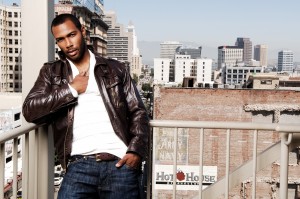
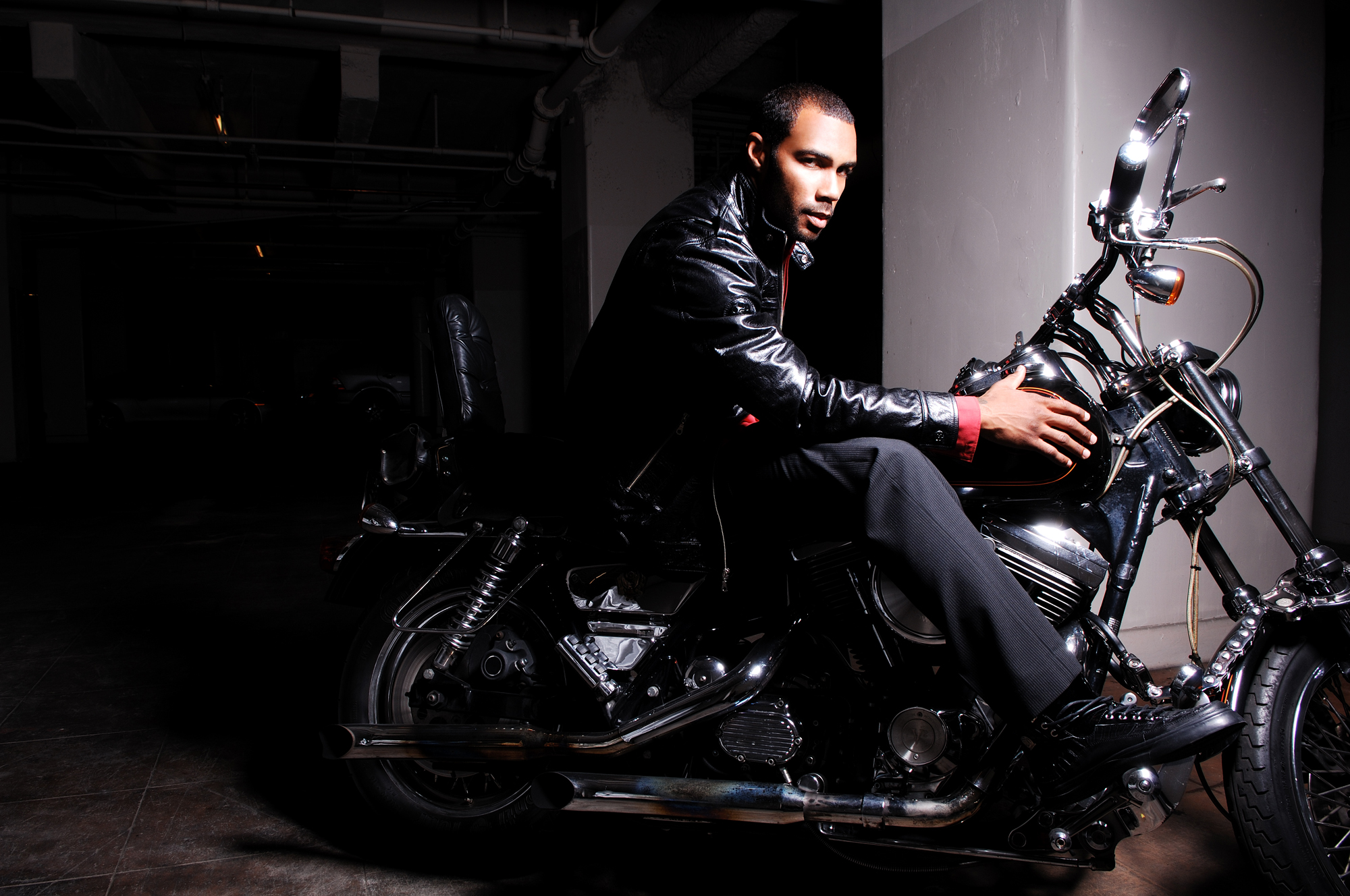


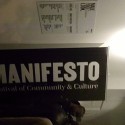

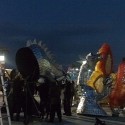
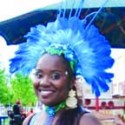
Leave your response!